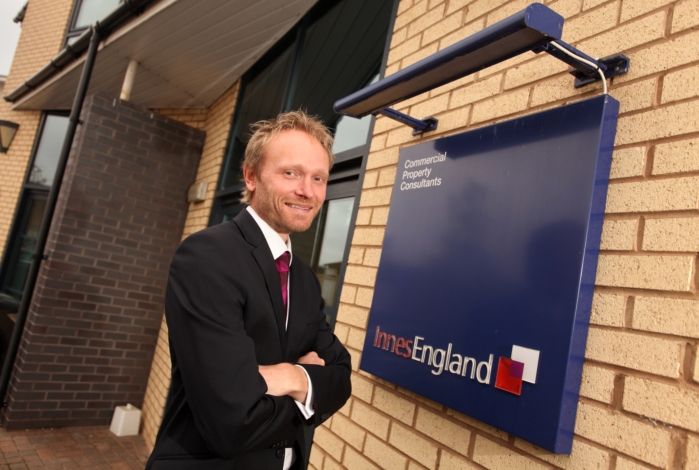After a spectacular crash in 2007, the UK property market is beginning to find its feet again but Steve Holland, director at East Midlands property consultancy Innes England, warns that we should approach with caution.
I’m partial to the odd automotive analogy – if the engine of the UK economy was over-revved in 2007, firing the pistons straight out through the bonnet sending the rest of the car careering off spectacularly into the Armco then it took until last year to put it all back together.
At the end of 2014, wage growth noticeably exceeded inflation levels for the first time since 2008 and the threat of a problematic and unsustainable housing bubble had, outside of London, waned.
We also started to see institutional ‘blue chip’ investors casting their nets wider than the traditional hotbed in the South East, developing an appetite for opportunities in the higher yielding East Midlands, which will undoubtedly serve to drive activity and demand in our region. I’d like to think that we were rumbling off the grass and back onto the black stuff, just reaching for second gear.
Faced with threats from destabilising and serious, difficult global events outside of our control, we are at a critical stage. Grim and dismaying as some may have been, it is the nature of the modern world.
The General Election, which is just weeks away, is also a real cause of uncertainty in the UK property market, increasingly cited as a concern affecting the recovery of the economy. Already we are observing nervousness within the market as investors proceed with caution, something which looks set to continue as the opening of the polls draws nearer.
To that end, the Royal Institution of Chartered Surveyors (RICS) has reported a slowing in investment property enquiries – albeit figures include a massive reduction of almost 50 per cent in Russian property investment in the UK last year – and disappointingly lukewarm expectations for 2015 in the residential market. This is particularly interesting as, for at least 50 years, there has been no correlation between UK GDP performance and years where a General Election has taken place.
Despite these factors, the mood is one of optimism, certainly across the East Midlands. In 2007, the speed of downturn and consequential depth of that momentum was undoubtedly part-fuelled by the media. This time around, it is important we don’t talk ourselves back to where we have worked so hard over the past few years to get away from. It is essential to proceed with caution, not to stop.
We are currently benefitting from reduced fuel prices, the expectation of interest rate rises is widely pushed back possibly to 2016 and GDP is at a cautious but encouraging 2.6 per cent growth, trending positively.
Here in the East Midlands, we have some great companies and brilliant people, not to mention a small army of high calibre graduates, who are poised to take further advantage of improving market conditions. Let’s get a few good miles under our belts, and warm things up nicely, not go spinning off at the very next corner.






















